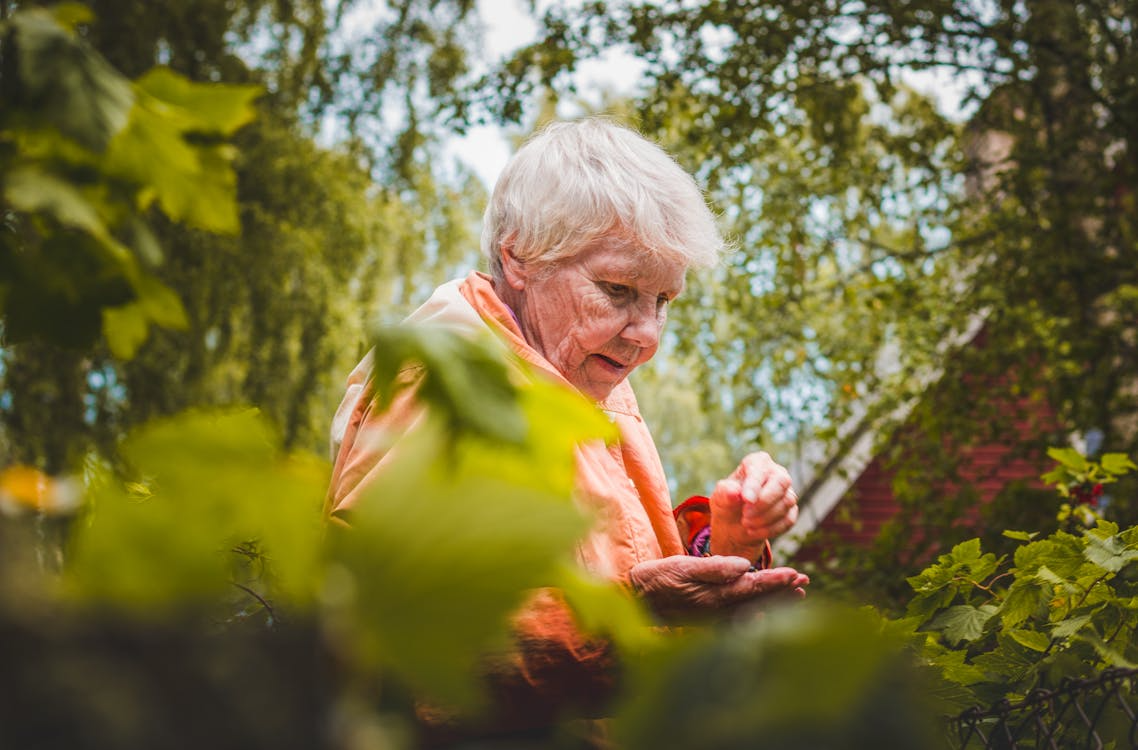
As the warmer weather arrived, homes across Australia began to awaken from winter’s slumber.
Indoor plants, quietly thriving through the cold months, were ready for attention.
But did you know that spending time daily with plants could reduce the likelihood of dementia by up to 36 per cent, according to a 16-year study of 2,800 older people at St Vincent's Hospital in New South Wales?
Your indoor plants had been more than just decoration—they worked as natural air purifiers, stress reducers, and mood boosters.
Spring presented the perfect opportunity to return the favour with a thorough refresh that would set them up for the growing season ahead.
Beyond aesthetics, this simple care routine had proven benefits for both body and mind.
The Hidden Health Benefits of Plant Care
NASA research revealed that plants could remove up to 87 per cent of volatile organic compounds from indoor air every 24 hours, including chemicals from cleaning products, furniture, and carpets.
'Active interaction with indoor plants can reduce physiological and psychological stress.'
Touching and smelling plants reduced stress, while soil microbes acted as natural antidepressants by triggering serotonin release.
Caring for plants also encouraged light exercise through bending and walking, supporting mobility, motor skills, and dexterity.
Your Spring Plant Health Check
Horticulturalist Tamara Campbell from Melbourne advised starting with a careful inspection.
Yellowing leaves, drooping stems, and winter dust were signs that attention was needed.
Indoor air was actually seven times more polluted than outdoor air, making the plants’ purifying role even more vital.
Senior-friendly inspection tips
Use a magnifying glass to spot small pests more easily
Inspect plants during the brightest part of the day for better visibility
Keep a small notebook to track which plants needed attention
Take photos to compare plant health over time
Soil levels should be checked and topped up with fresh potting mix as required.
Dr Greg Moore from the University of Melbourne suggested adding mulch and fertilising plants that would not be repotted.
Dust Away for Better Health and Growth
That layer of dust did more than look unattractive—it hampered the plants’ ability to support your health.
Campbell explained that dust created a barrier 'like putting a curtain over them,' blocking light.
For a deep clean, taking plants outside for a gentle hose down was ideal.
This flushed both plant and pot while clearing drainage paths.
Gentler indoor options included wiping larger leaves with a damp microfibre cloth, using a soft paintbrush for delicate foliage, or placing smaller plants in the shower for a mild rinse.
Why dust removal matters for seniors
- Cleaner leaves meant better air purification
- Improved light absorption supported plant health
- Less dust in the air meant easier breathing
- Healthier plants provided better stress-relief benefits
The Art of Spring Repotting
Spring was prime repotting season, giving plants the best start for the year.
Choosing the right potting mix mattered—Campbell recommended chunky aroid mix for peace lilies and Swiss cheese plants, which drained well while retaining some moisture.
Senior-friendly repotting tips included working at table height, using lightweight pots, spreading newspapers for easy cleanup, and keeping all materials within arm’s reach.
Smart Staking for Plant Support
Mike Sullivan highlighted the importance of staking early to prevent the 'hunchback monstera' look, while mature plants benefited from support too.
Senior-friendly staking tips: use bamboo stakes for strength without heaviness, soft plant ties to avoid damage, and position stakes during repotting to reduce root disturbance.
Positioning Plants for Spring Success
As daylight lengthened, light patterns shifted.
Campbell emphasised proper lighting, while Moore warned against scorching.
Walking through your home revealed which spots were now ideal or too bright.
Did you know?
Air humidity matters Air humidity between 40-60 per cent promoted comfort, and when outside this range, headaches or concentration issues could occur—another reason to keep humidity-loving plants healthy.
Avoid placing plants near heating or cooling ducts, as both could dry out leaves.
Best Plants for Senior Plant Parents
Snake plants absorbed toxins like benzene and formaldehyde while remaining low-maintenance.
Peace lilies were among NASA’s top air purifiers, combating carbon monoxide and ammonia.
Aloe vera purified air and provided a natural burn remedy.
The Social Side of Plant Care
Indoor gardening improved mobility, reduced stress, and offered a sense of accomplishment.
Making it social—inviting family or friends—added extra enjoyment.
Retirement communities increasingly filled common areas with plants like ivy, peace lilies, and bamboo palms to create nurturing environments.
Seasonal Safety Reminders
Refresh your plant collection safely by using stable stepping stools for higher plants, keeping pathways clear, choosing lightweight watering cans, and selecting therapeutic-scent plants like lavender.
Health disclaimer: While plants offered many proven benefits, always consulted your healthcare provider before making significant changes to your environment, especially if you had allergies or respiratory conditions.
Quick spring plant health checklist
Inspect for pests and diseases
Remove dead or yellowing foliage
Dust leaves for better light absorption
Check and adjust watering schedules
Reposition plants for optimal spring light
Consider repotting overgrown plants
Add fresh mulch or potting mix as needed
Your indoor plants had quietly improved your health all winter.
A spring refresh rewarded both you and your plants, combining gentle physical activity, stress relief, and cleaner air for maximum wellbeing.
What This Means For You
Spending time with indoor plants every day can reduce the risk of dementia by up to 36 per cent, while their natural ability to remove volatile organic compounds helps improve air quality and overall wellbeing.
A thorough spring clean—including inspecting, dusting, and repotting—supports plant growth and maximises these benefits.
Beyond this, indoor gardening provides gentle exercise, helps relieve stress, and encourages social interaction, making it a rewarding activity for seniors.
For Australians over 60, taking care of your indoor garden is more than a hobby—it’s a simple way to boost your health, maintain mobility, and stay connected with friends, family, and nature all year round.
If you enjoyed learning how caring for indoor plants can improve your health and wellbeing, there’s even more you can do in your garden to boost happiness and longevity.
Some gardening habits and simple tricks go beyond plant care to enhance both physical activity and mental clarity, making your daily routine more rewarding.
For practical tips and expert advice on maximising the benefits of your garden, check out this useful guide.
Read more: Experts Reveal the Top 7 Gardening Secrets for Boosting Your Lifespan and Happiness!
Houseplants: 6 Surprising Health Benefits for Seniors — Explains how spending time daily with plants can reduce dementia risk and improve mental health through interaction with soil and plant care.
https://allseniorscare.com/blog/houseplants-surprising-benefits-for-seniors/
How Gardening Helps Senior Health | A Place for Mom — Highlights the cognitive and physical benefits of daily plant care, including reduced dementia likelihood and gentle exercise.
https://www.aplaceformom.com/caregiver-resources/articles/gardening-benefits
House Plants For Seniors | LDK Seniors' Living — Discusses the air-purifying properties of indoor plants and their role in maintaining a healthier indoor environment.
https://ldk.com.au/info/benefits-of-plants/
Best Indoor Plants for Health—Bunnings Australia — Covers key indoor plant benefits such as air purification, improved humidity, and creating a comfortable living environment.
https://www.bunnings.com.au/diy-advice/garden/planting-and-growing/best-indoor-plants-for-health
Cultivating Wellness: The Benefits of Indoor Plants for Seniors in Assisted Living — Focuses on how indoor gardening promotes mobility, reduces stress, and enhances a sense of accomplishment in assisted living settings.
https://www.providencefairfax.com/b...-indoor-plants-for-seniors-in-assisted-living
Which indoor plant has brought you the most joy, and how do you care for it each season?







